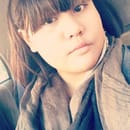Participating in research provides a multitude of benefits to undergraduate students. According to Dr. Anne Charity Hudley, research allows us to see the world through a specific lens, to think critically, and even contribute towards improving the lives of those around us. When we partake in research, we take the information we learned in our courses and put them into practice. In turn, we expand our horizons and enrich our education by engaging in experiential learning.
UCSB is regarded as a top tier research institution with a great number of distinguished faculty in their respective fields. As students, we should be taking advantage of this opportunity to work among such distinguished faculty and other like-minded individuals. However, first-year students come to UCSB lacking a comprehensive understanding of what research actually entails. Students who decide to study a discipline from the social sciences or humanities feel particularly discouraged from seeking out research opportunities. Students tend to have this conception of research as wearing a lab coat, mixing chemicals, and waiting for something extraordinary to happen. However, research could very well be conducted in the social sciences and humanities through conducting observational studies and analyzing behavioral patterns or writing a paper about a systemic issue in the criminal justice system.
Image via Creative Commons
At our university, departments ranging from the Psychological & Brain Sciences Department to Religious Studies all have faculty who are conducting research. Often, the faculty members and even their graduate students post via the Faculty Research Assistance Program (FRAP) that they’re seeking undergraduate research assistants to help them with their projects. There are also programs like the McNair’s Scholar Program, the Gorman Scholar’s Program, and the RAAB Writing Fellowship which allow students to pursue their own independent research projects. Despite all these opportunities, many students don’t know how to get involved with undergraduate research.
Image via Creative Commons
In order to promote undergraduate participation in research, the university developed a resource within the College of Letters and Science known as the Undergraduate Research and Creative Activities Office, or URCA. URCA strives to provide students with equitable access to research and internship opportunities on and off-campus. The office is responsible for the Faculty Research Assistance Program (FRAP), providing grants for students interested in conducting independent research and the UCDC and UCCS programs.
In my honest opinion, URCA is a very underutilized resource on campus. Unfortunately, the misconception of a researcher as the mad scientist in the lab mixing the chemicals has been a lasting image in student’s minds. Students in the humanities and social sciences disciplines tend not to partake in creative projects or write theses. As a result, these students don’t come into the office asking questions about the grant or participate in the UCDC/UCCS internship programs. I joined the URCA office as a Peer Mentor earlier this year and have made it my goal to shift this perspective and encourage students to take part in research and other creative activities. My colleagues are also undergraduate students from different majors and different years, conducting a range of research projects.
Image Courtesy of Jacob LaViolet and Paulina Ramirez-Niembro
Speaking on behalf of the URCA team, we highly encourage students to look into participating in undergraduate research. In addition to the benefits mentioned, research could immensely help students who want to attend graduate school or law school. Since you’re working with a faculty member on their research, you have the opportunity to input your own ideas into their research, discuss your intentions of participating in their research, and build rapport with them. Eventually, after discussing your intentions of attending graduate school or law school with your professor, they more than likely will be inclined to write a letter of recommendation for you, which is required for your application. Research experience also allows you to become a very competitive applicant for these post-undergraduate opportunities. For students who may not have the time nor the means to engage in internships in Goleta or Santa Barbara, you have the comfort of learning valuable skills like data analysis and interpretation on your own campus.
If you’re interested in learning about how to get involved but don’t know where to start, we highly encourage you to stop by our office and learn more! We can walk you through how to find research opportunities on campus, help you reach out to professors, and even assist you with applying for grants to fund your original research. Recipients of our grants can be awarded up to $750 for conducting their research! Since the peer mentors have experience with research already, we’re more than happy to share our experiences with you and provide advice on how to gain the most out of your research experience. Our office is located on the 1st Floor of the library, Ocean-Side in room 1576 and we have staff members there Monday-Friday, 9AM to 5PM. We hope you take advantage of this wonderful campus resource!

